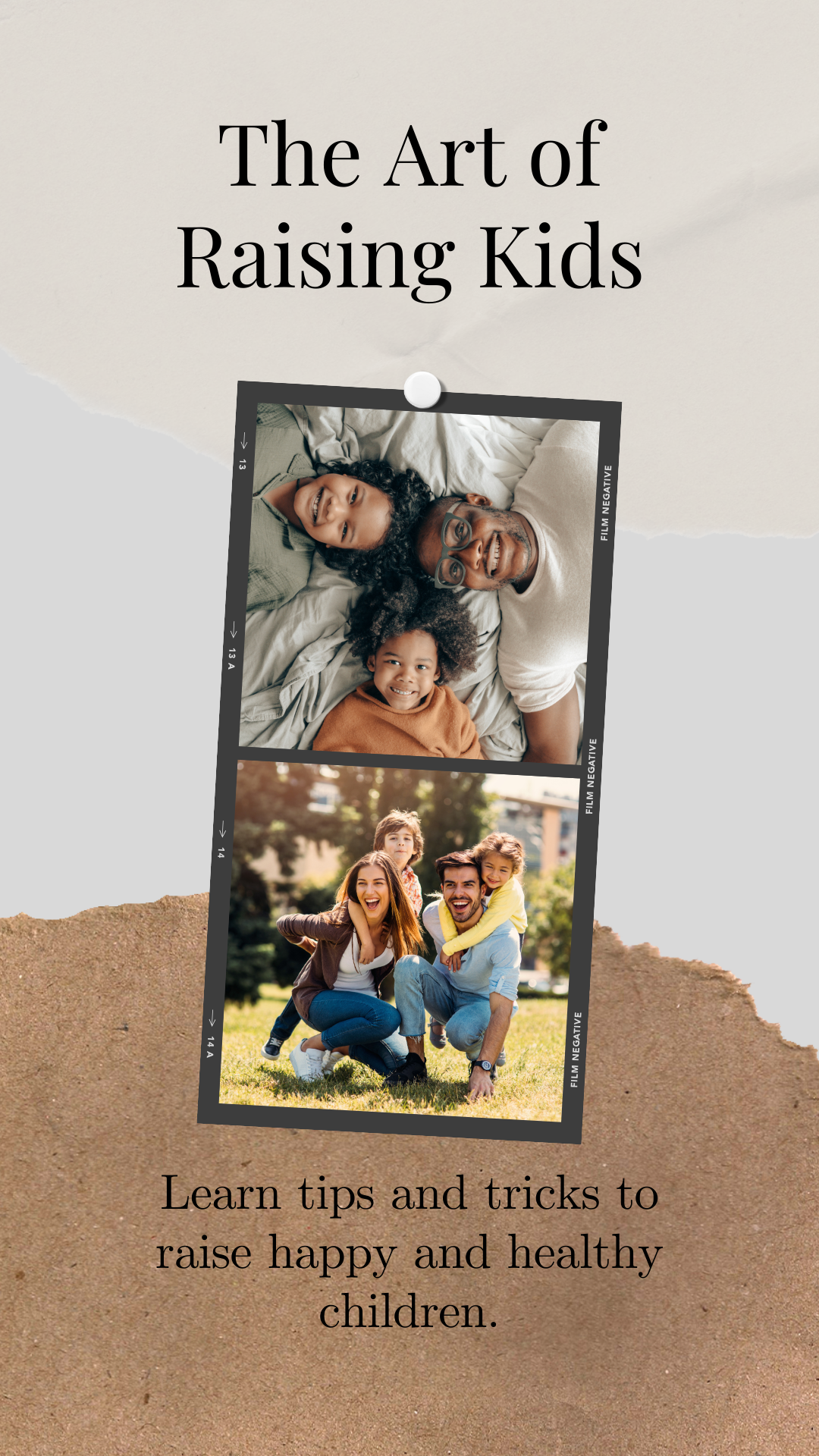Raising kids is one of the world's most demanding, rewarding, and complex jobs. Every parent wants their children to succeed, be happy, and grow up to be kind, responsible adults. But the road to getting there can be bumpy, with many twists, turns, and surprises. In this blog post, we will explore five critical topics related to raising kids that can help make the journey smoother and more fulfilling.
1. The Unexpected Benefits of Letting Your Kids Find Their Solutions
As parents, we often want to protect our children from the challenges and difficulties of life. We want to make things easier for them, to help them avoid pain and struggle. But sometimes, the best thing we can do is step back and let them find solutions to problems.
When kids can problem-solve independently, they develop essential life skills like creativity, critical thinking, and resilience. They learn that they can overcome obstacles and find solutions, which builds their confidence and self-esteem. And when they make mistakes or encounter setbacks, they can learn from them, grow, and become more resilient.
So the next time your child comes to you with a problem, resist the urge to jump in and solve it for them. Ask them questions, help them brainstorm ideas, and encourage them to develop solutions. You might be surprised at what they come up with and how much they learn.
2. Why Teaching Your Kids About Failure is the Best Thing You Can Do For Them
Failure is a natural part of life, and it's something that everyone experiences at some point. But many parents fear letting their kids fail, thinking it will damage their self-esteem or hurt their chances of success. In reality, though, teaching your kids about failure can be one of the best things you can do for them.
When kids learn that failure is a normal part of life, they are more likely to take risks, try new things, and push themselves out of their comfort zones. They learn that failure is not the end of the world but rather an opportunity to learn, grow, and try again. And when they experience failure, they are better equipped to handle it healthily without getting discouraged or giving up.
So, how can you teach your kids about failure? Start by modeling healthy attitudes towards failure yourself. Be open about your mistakes and setbacks, and discuss how you learned from them. Encourage your kids to take risks and try new things, even if they might fail. And when they experience failure, help them process their emotions and find ways to move forward.
3. The Importance of Self-Care for Parents
Raising kids can be a full-time job, and it's easy to get so caught up in caring for your children that you forget to take care of yourself. But self-care is essential for parents, too, and neglecting it can lead to burnout, stress, and even physical and mental health problems.
So, what does self-care look like for parents? It can be as simple as taking a few minutes each day to do something you enjoy, like reading a book or taking a walk. It can mean prioritizing sleep, exercise, and healthy eating, even when busy. It can involve asking for help when needed, whether hiring a babysitter or reaching out to friends and family.
When parents prioritize self-care, they are better equipped to handle the challenges of raising kids. They have more patience, energy, and resilience, which helps them be better parents and partners. And they model healthy behaviors for their children, showing them that taking care of yourself is essential and valuable.
4. The Surprising Impact of Getting to Know Your Kids' Friends
We all know that our kids' friends are essential in their lives. But did you know that getting to know your kids' friends can positively impact your own life, too?
When parents take the time to get to know their kids' friends, they can build stronger relationships with their children. They can better understand their kids' interests, hobbies, and struggles and provide more relevant and meaningful support. They can also help their kids navigate the complexities of friendship by offering advice and guidance when needed.
In addition, getting to know your kids' friends can be an opportunity to build your social network. You might have things in common with your kids' friends' parents and enjoy spending time with them. This can help you feel more connected to your community and provide a source of support and friendship for yourself.
5. Embracing the Chaos: How to Find Joy in the Messy Moments of Parenting
Let's face it: raising kids can be messy, chaotic, and unpredictable. There are tantrums, spills, messes, and meltdowns. But there are also moments of joy, wonder, and connection that make it all worthwhile.
So, how can you embrace the chaos of parenting and find joy in the messy moments? One way is to practice mindfulness and gratitude. When you focus on the present moment, you can appreciate the small joys and pleasures of parenting, like a baby's giggle or a child's hug. When you cultivate a sense of gratitude, you can appreciate the bigger picture and feel thankful for the opportunity to raise and love your children.
Another way to find joy in the messy moments is to seek out the humor and absurdity in them. When you laugh at the chaos, you can diffuse tension, lighten the mood, and positively connect with your kids.
Raising kids is a journey full of surprises, challenges, and joys. By letting your kids find solutions, teaching them about failure, prioritizing self-care, getting to know their friends, and embracing the chaos, you can make the journey smoother and more fulfilling for yourself and your children.


